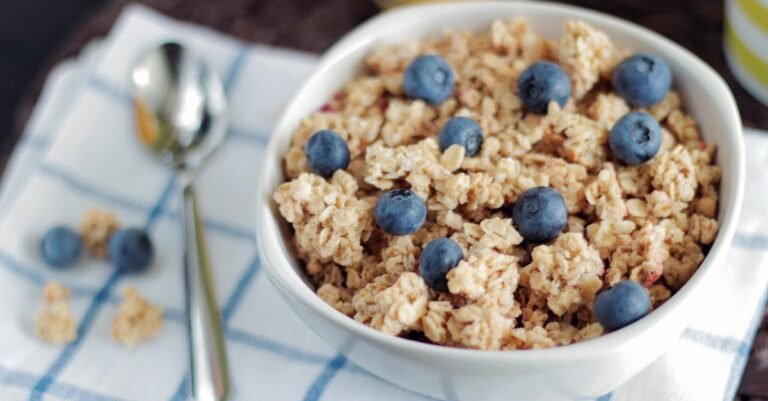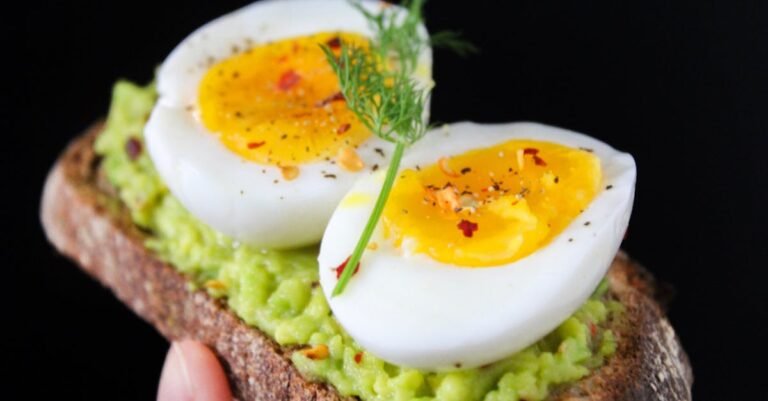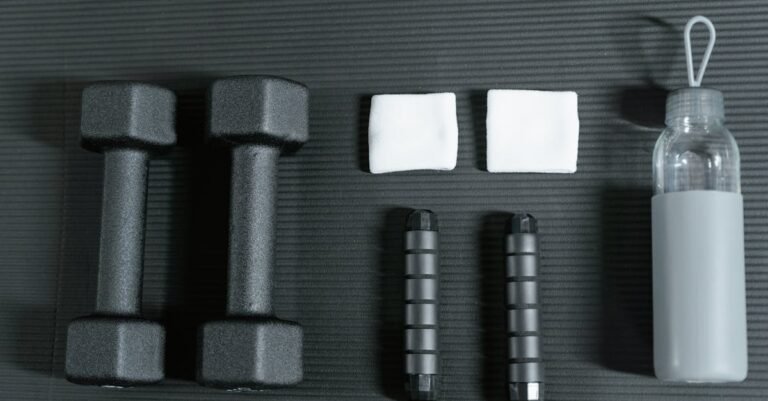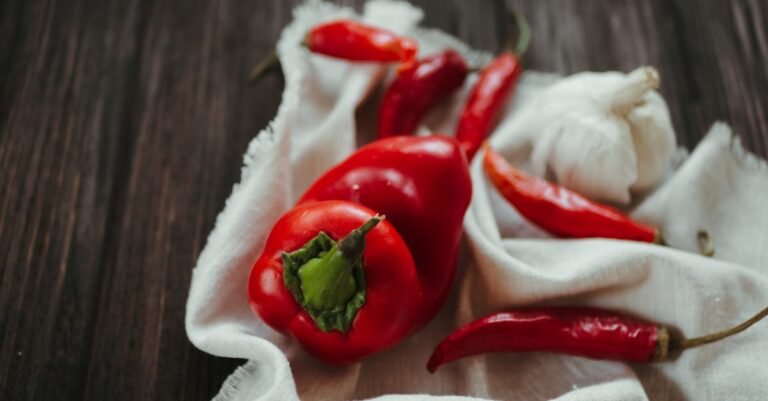Table Of Content
- Easy Post Workout Meal Ideas For Recovery
- Why Bother With Post Workout Fuel Anyway?
- The Dynamic Duo: Protein & Carbs Take Center Stage
- The ‘Anabolic Window’: Fact or Fitness Fiction?
- Super Simple & Speedy Recovery Meal Ideas
- Meal Prepping Magic: Making Recovery Effortless
- Listen To Your Body: The Ultimate Guide
- Wrapping It Up: Fueling Your Fitness Journey
- Frequently Asked Questions (FAQs)
Easy Post Workout Meal Ideas For Recovery
Alright, let’s talk! You just crushed that workout. You’re sweaty, maybe a little shaky, but feeling accomplished, right? High five! But hold on, your job isn’t quite done yet. What you do after the workout is just as crucial as the sweat session itself, especially when it comes to food. Think of your body like a car after a long race; it needs refueling and some TLC to get back on the track. That’s where post workout nutrition comes in, and trust me, it doesn’t have to be complicated or taste like cardboard. Forget those super complex recipes you see online sometimes; we’re talking easy, quick, and effective ways to help your body recover, rebuild, and get ready for your next challenge. Ready to dive into some simple meal ideas that will make your muscles sing?
Why Bother With Post Workout Fuel Anyway?
Okay, real talk. Why is everyone always harping on about eating after exercise? Is it just another fitness fad? Absolutely not! When you push your body during a workout – whether it’s lifting weights, running miles, or flowing through yoga – you’re essentially causing tiny little tears in your muscle fibers (don’t worry, this is good stress!) and using up your stored energy, primarily glycogen. Your body is amazing and immediately wants to start the repair process and restock those energy stores. Giving it the right nutrients right after you finish helps kickstart this process like a turbo boost.
Muscle Repair and Growth: Building Back Stronger
Those microscopic muscle tears I mentioned? They are the stimulus for muscle growth and adaptation. But your body can’t rebuild from thin air! It needs building blocks, primarily protein, to repair that damage and, over time, build the muscle back stronger and more resilient than before. Think of it like patching up tiny holes in a wall – you need the spackle (protein) to fill them in and make the wall solid again. Eating protein after your workout provides the amino acids necessary for this crucial muscle protein synthesis (MPS) process. Skipping this step is like leaving the construction crew without bricks!
Replenishing the Energy Tanks: Glycogen Reload
Glycogen is your body’s preferred, readily available fuel source during moderate to high intensity exercise. It’s stored primarily in your muscles and liver. When you work out, especially for longer durations or at higher intensities, you significantly deplete these glycogen stores. Ever hit a wall during a workout? That’s often your glycogen tank running on empty. Consuming carbohydrates after exercise helps replenish these stores much faster than if you waited hours to eat. Why does this matter? Full glycogen stores mean you’ll have more energy for your next workout, better performance, and quicker recovery overall. It’s like refilling your car’s gas tank after a long drive so you’re ready for the next trip.
Reducing Muscle Soreness: Less Ouch, More Awesome
Ah, DOMS – Delayed Onset Muscle Soreness. That lovely feeling a day or two after a tough workout where even sitting down feels like an Olympic event. While some soreness is often unavoidable, proper post workout nutrition can potentially help lessen its severity and duration. By providing the nutrients needed for repair and reducing inflammation (certain carbs and proteins play a role here too!), you’re giving your body a head start on the healing process. It won’t magically eliminate all soreness, but it can certainly make the recovery period more manageable, getting you back to feeling good faster.
The Dynamic Duo: Protein & Carbs Take Center Stage
So, we know why we need to eat, but what should we be eating? The two superstars of post workout recovery are undoubtedly protein and carbohydrates. They work together synergistically to maximize the recovery process.
Protein Power: The Muscle Builder
As we touched upon, protein is the king when it comes to muscle repair and growth. Exercise breaks down muscle protein; consuming protein afterwards provides the amino acids needed to halt this breakdown and stimulate the building of new muscle tissue (MPS). How much do you need? While individual needs vary based on body size, workout intensity, and goals, a general guideline for post workout is often around 20 40 grams of high quality protein. Think lean meats, poultry, fish, eggs, dairy (like Greek yogurt or cottage cheese), legumes, tofu, and protein powders (whey, casein, soy, or plant based blends). Quality matters here – you want complete proteins that contain all the essential amino acids your body can’t make on its own.
Carb Comeback: The Energy Restorer
Carbohydrates are your primary tool for refilling those depleted glycogen stores. After a workout, your muscles are like thirsty sponges, primed to soak up glucose (from carbs) to rebuild their energy reserves. Consuming carbs alongside protein has also been shown to enhance the muscle repair process even further, possibly by increasing insulin levels, which helps shuttle nutrients (including amino acids from protein) into muscle cells more effectively. Aim for easily digestible carbohydrates. Good sources include fruits (like bananas, berries), starchy vegetables (sweet potatoes, potatoes), rice, quinoa, oats, and whole grain bread or pasta. The amount you need depends heavily on the duration and intensity of your workout. Endurance athletes will typically need more carbs than someone who did a shorter resistance training session. A common recommendation is a carb to protein ratio of around 3:1 or 4:1, but again, this can be adjusted based on your specific needs and workout type.
What About Fats? A Supporting Role
While protein and carbs are the main players immediately post workout, fats aren’t the enemy! Healthy fats are essential for overall health, hormone production, and reducing inflammation. However, consuming a large amount of fat immediately after exercise might slightly slow down the digestion and absorption of your crucial carbs and protein. This doesn’t mean you need to avoid fats altogether in your recovery meal, especially if it’s a full meal rather than just a quick snack. Just be mindful – prioritize protein and carbs in that initial post workout window, and include healthy fats (like avocado, nuts, seeds, olive oil) in your overall diet and later meals.
Don’t Forget Hydration!
This isn’t a macronutrient, but it’s critically important! You lose fluids and electrolytes through sweat during exercise. Dehydration can impair recovery, increase fatigue, and even lead to muscle cramps. Make sure you’re rehydrating adequately after your workout. Water is usually sufficient for shorter or less intense sessions. For longer or sweatier workouts, consider a drink containing electrolytes (like sodium and potassium) to help replenish what you’ve lost. Listen to your thirst, but also pay attention to your urine color – pale yellow is usually a good sign of adequate hydration.
The ‘Anabolic Window’: Fact or Fitness Fiction?
You’ve probably heard about the “anabolic window” – that supposedly magical 30 to 60 minute period after exercise where your body is primed to suck up nutrients like crazy, maximizing muscle growth and recovery. For years, fitness gurus preached the gospel of chugging a protein shake the second you drop the dumbbells. Is it true? Well, yes and no. It’s more like an “anabolic porch” than a tiny window that slams shut.
Yes, your body is definitely more sensitive to nutrient uptake, particularly insulin sensitivity is higher, immediately following exercise, making it a great time to refuel. Replenishing glycogen and initiating muscle protein synthesis *is* important. However, research suggests that the timing isn’t quite as critical as once believed, especially if you had a pre workout meal or snack within a few hours before your session. The total amount of protein and carbohydrates consumed over the entire day is likely more important for long term muscle growth and recovery than hitting that exact 30 minute window.
So, what’s the takeaway? Don’t stress if you can’t slam a shake the minute you finish your last rep. Aim to get a good quality protein and carbohydrate rich meal or snack in within a reasonable timeframe after your workout – say, within 1 to 2 hours. If you trained fasted (like first thing in the morning), then getting that post workout nutrition in sooner rather than later becomes more beneficial. The key is consistency and ensuring you meet your overall daily nutrient needs. Focus on quality fuel, reasonably timed.
Super Simple & Speedy Recovery Meal Ideas
Okay, enough theory! Let’s get to the practical stuff. You need fuel, you need it relatively soon, and you probably don’t want to spend an hour in the kitchen. Here are some genuinely easy and effective post workout meal and snack ideas:
Smoothie Sensations: Blend Your Way to Bliss
Smoothies are the ultimate convenience food for post workout recovery. They’re quick to make, easy to digest, and incredibly customizable. You can pack protein, carbs, healthy fats, and hydration all into one delicious glass. The key is a good balance.
Protein Packed Berry Blast
This is a classic for a reason. It’s refreshing and loaded with goodies.
Ingredients:
- 1 scoop protein powder (whey, casein, or plant based)
- 1 cup frozen mixed berries (carbs, antioxidants)
- 1/2 banana (carbs, potassium)
- 1 cup unsweetened almond milk, regular milk, or water
- Optional: 1 tablespoon chia seeds or flax seeds (fiber, healthy fats)
Directions: Just blend it all until smooth! Adjust liquid for desired consistency.
Green Machine Recovery Fuel
Don’t let the color fool you; this is tasty and nutrient dense.
Ingredients:
- 1 scoop vanilla or unflavored protein powder
- 1 large handful spinach (you won’t taste it, promise!)
- 1/2 cup pineapple chunks (frozen or fresh – aids digestion too!)
- 1/2 green apple
- 1 cup coconut water or plain water (electrolytes!)
- Optional: 1/4 avocado (healthy fats, creaminess)
Directions: Blend away! Add more liquid if needed.
Greek Yogurt Goodness: Creamy & Convenient
Greek yogurt is a protein powerhouse. It’s thick, creamy, and provides a fantastic base for adding carbs and flavor. A single serving cup often packs 15 20 grams of protein.
Easy Idea: Top a cup of plain Greek yogurt with:
- A handful of berries (fresh or thawed frozen)
- A sprinkle of granola (choose one lower in sugar)
- A drizzle of honey or maple syrup (quick carbs)
- Some chopped nuts or seeds (optional fats and crunch)
It takes about 30 seconds to assemble and hits those protein and carb needs perfectly.
Overnight Oats Oasis: Prep Ahead Power
If you know you’ll be short on time after your workout (hello, morning exercisers!), overnight oats are your best friend. Prepare them the night before, and they’re ready to grab and eat.
Basic Recipe:
- 1/2 cup rolled oats (complex carbs)
- 1 scoop protein powder (optional, but boosts protein)
- 1 cup milk (dairy or plant based) or water
- 1 tablespoon chia seeds (helps thicken, adds fiber/fat)
Directions: Combine ingredients in a jar or container. Stir well. Refrigerate overnight (or for at least 4 hours). In the morning, stir again and top with fruit, nuts, or a little sweetener if desired. You can add mashed banana, pumpkin puree, or cocoa powder before refrigerating for different flavors.
Egg cellent Choices: Versatile Protein Punch
Eggs are a fantastic source of high quality protein and other nutrients. They’re quick to cook too!
Quick Ideas:
- Scrambled Eggs with Toast: Scramble 2 3 eggs and serve with a slice of whole wheat toast. Maybe add some spinach or chopped peppers to the scramble for extra veggies.
- Quick Omelet: Whisk eggs with a splash of milk, pour into a hot pan, add some cheese or veggies, fold, and serve.
- Hard Boiled Eggs: Cook a batch ahead of time. Grab 2 3 hard boiled eggs and a piece of fruit (like an apple or banana) for a super simple, portable snack.
Simple Sandwiches & Wraps: Grab and Go Gains
Don’t underestimate the power of a simple sandwich or wrap on whole grain bread or tortilla.
Tuna Salad Powerhouse (on Whole Wheat)
Mix canned tuna (packed in water, drained) with a little Greek yogurt or light mayo, maybe some chopped celery or onion. Serve on whole wheat bread or crackers. Tuna provides lean protein and omega 3s.
Quick Chicken & Veggie Wrap
Use pre cooked chicken breast strips (leftovers or store bought), stuff them in a whole wheat tortilla with lettuce, tomato, maybe a little hummus or avocado. Roll it up, and you’re good to go!
Quick Bowl Bonanza: Customizable Comfort
Bowls are great because you can use leftovers or quickly assemble components.
Base: Start with a carbohydrate base like cooked quinoa, brown rice, or roasted sweet potato cubes (prep these ahead!).
Protein: Add a protein source like grilled chicken, canned beans (rinsed), lentils, tofu, or leftover lean meat.
Veggies/Flavor: Toss in some quick veggies (cherry tomatoes, cucumber, bell peppers) and a simple dressing (lemon juice and olive oil, salsa, or light vinaigrette).
Example: Quinoa bowl with black beans, corn, salsa, and a sprinkle of shredded cheese or avocado.
Meal Prepping Magic: Making Recovery Effortless
Let’s be honest, even these simple ideas can feel like too much effort when you’re tired and hungry post workout. This is where a little bit of meal prep saves the day. You don’t need to prep elaborate gourmet meals for the entire week (unless you want to!). Even small steps make a huge difference:
- Cook Grains Ahead: Make a big batch of quinoa or brown rice at the beginning of the week. Store it in the fridge to quickly add to bowls or salads.
- Prep Protein: Grill or bake several chicken breasts, hard boil a dozen eggs, or cook a batch of lentils. Having cooked protein ready makes assembling meals lightning fast.
- Wash & Chop Veggies: Wash lettuce, chop peppers and cucumbers, and store them in airtight containers. Ready to toss into salads, wraps, or omelets.
- Portion Smoothie Packs: Put smoothie ingredients (fruit, spinach, protein powder portioned out) into individual freezer bags. When ready, just dump the bag contents into the blender, add liquid, and blend.
- Make Overnight Oats: Assemble 3 4 jars of overnight oats on Sunday night for easy grab and go breakfasts or post workout snacks during the week.
Spending just an hour or two prepping on the weekend can set you up for success all week long, removing the “what should I eat?” dilemma when you’re feeling drained after exercise.
Listen To Your Body: The Ultimate Guide
While all these guidelines and ideas are great starting points, remember that you are unique! Your nutritional needs depend on so many factors: your size, your age, your specific type of workout (intensity and duration), your goals (muscle gain, fat loss, performance), your dietary preferences, and any intolerances or allergies you might have. What works perfectly for your gym buddy might not be the optimal choice for you.
Pay attention to how you feel after eating certain post workout meals. Do you feel energized and recovered? Or bloated and sluggish? Does a particular meal keep you full until your next planned eating time? Experiment a little. Maybe you find you digest smoothies better than solid food right after a hard run. Perhaps you need slightly more carbs after leg day compared to an upper body day. Your body often gives you cues – learn to listen to them. Don’t be afraid to adjust portion sizes or macronutrient ratios based on your individual experience and how your body responds. The “best” post workout meal is ultimately the one that supports your recovery, fits your lifestyle, and makes you feel good.
Wrapping It Up: Fueling Your Fitness Journey
So there you have it! Refueling after your workout doesn’t need to be another chore on your to do list. By understanding *why* it’s important – to repair muscle, restock energy, and reduce soreness – and focusing on the key nutrients, protein and carbohydrates, you can make smart choices that accelerate your recovery. The trick is to keep it simple, convenient, and consistent. Whether it’s a quick smoothie, a satisfying Greek yogurt bowl, prepped overnight oats, or a simple wrap, finding easy options that you actually enjoy makes sticking with it so much easier. Remember the ‘anabolic porch’ – aim to eat within a couple of hours, prep ahead when you can, stay hydrated, and most importantly, listen to your own body. Fueling properly is an investment in your health, your performance, and your ability to keep crushing those fitness goals. Now go enjoy that well deserved recovery meal!
Frequently Asked Questions (FAQs)
1. Do I really need a protein shake immediately after lifting weights?
While protein shakes are convenient and quickly digested, they aren’t strictly necessary immediately after lifting unless you trained fasted or won’t be eating a proper meal for several hours. Consuming adequate protein (around 20 40g) along with carbohydrates within 1 2 hours post workout is generally sufficient for most people to support muscle repair and recovery. Whole food sources work just as well!
2. Can I just eat fruit after my workout?
Fruit is a great source of carbohydrates (which helps replenish glycogen) and provides vitamins and hydration. However, it lacks a significant amount of protein, which is crucial for muscle repair. While fruit is a good component of a post workout snack, it’s best to pair it with a protein source like Greek yogurt, cottage cheese, a handful of nuts (in moderation), or some hard boiled eggs for more complete recovery.
3. What if I work out late at night? Should I still eat afterwards?
Yes, you should generally still consume a post workout meal or snack, even if it’s late. Your body needs those nutrients for recovery regardless of the time. Opt for something easily digestible and balanced in protein and carbs, perhaps slightly smaller than a daytime meal if you’re heading straight to bed. Good options include Greek yogurt with berries, a small protein smoothie, or cottage cheese with pineapple. Avoid very large or heavy meals that might disrupt sleep.
4. How much water should I drink after exercising?
Hydration needs vary greatly depending on sweat rate, workout duration/intensity, and climate. A general guideline is to drink 16 24 ounces (about 500 700ml) of fluid for every pound of body weight lost during exercise. Since most people don’t weigh themselves before and after, a practical approach is to drink consistently throughout the hours following your workout. Sip water steadily, aiming for pale yellow urine color as an indicator of good hydration. If you had a very long or intense session, include electrolytes.
5. Are sugary sports drinks a good post workout option?
For most recreational exercisers doing moderate workouts under an hour, plain water is usually sufficient for hydration. Sugary sports drinks provide quick carbs and electrolytes, which can be beneficial for endurance athletes during or after very long (90+ minutes) or intense sessions, especially in hot weather. However, for shorter workouts, the added sugar might be unnecessary calories. A balanced snack or meal containing whole food sources of carbs and protein is often a better choice for general recovery.










